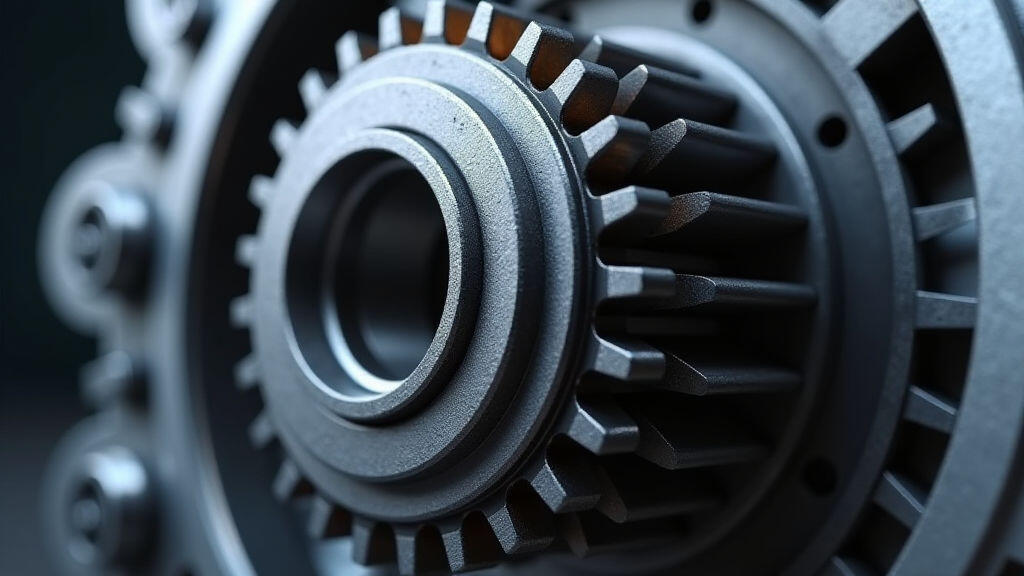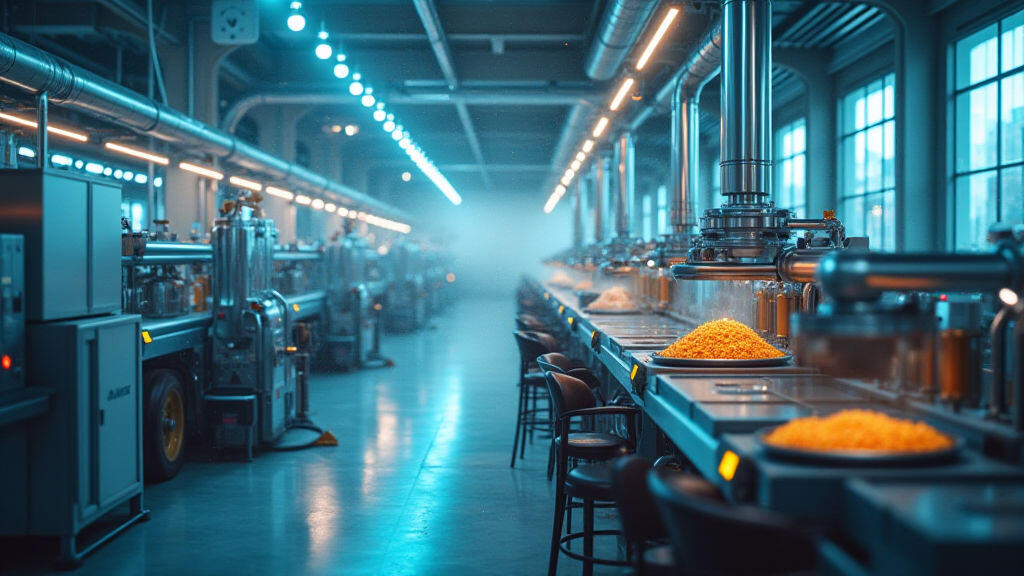
The global food processing industry is undergoing a rapid transformation, driven by rising consumer demand for fresh, convenient, and sustainably produced goods. This evolution necessitates increasingly efficient and reliable machinery, particularly gear motors. As the world grapples with escalating energy costs and a growing focus on environmental responsibility, optimizing the performance of these critical components is paramount. This article explores how advancements in gear motor technology, coupled with intelligent control systems, are revolutionizing food processing production lines, specifically focusing on the role of "English" (referring to advanced digital controls and data analytics) in achieving enhanced speed and energy efficiency. We'll examine current trends, benefits, and the potential of companies like MES-Drive to lead this innovation.
Modern food processing plants operate under intense pressure. They need to meet stringent deadlines, maintain product quality and safety, and minimize operational costs. Inefficient gear motors can directly impact these key areas. Consider a continuous processing line for pasta production. Inefficient gear motors driving conveyor belts or mixing equipment lead to slower throughput, increased energy consumption, and potential product inconsistencies. Furthermore, outdated motor technology often results in significant energy waste, contributing to higher carbon footprints – a growing concern in today’s climate. The recent surge in renewable energy adoption and government regulations pushing for carbon neutrality have further amplified the need for energy-efficient solutions. This is especially true given the rising cost of electricity highlighted by recent geopolitical events and supply chain disruptions.
Gear motors, fundamentally, combine a motor with a gearbox to achieve desired output speed and torque. Modern gear motor technology is evolving rapidly, focusing on several key areas:
High-Efficiency Gear Designs: Advanced gear geometries, such as helical gears and planetary gearboxes, minimize friction and maximize power transmission efficiency. These designs are far superior to older spur gear configurations. MES-Drive, for example, utilizes advanced CAD/CAM techniques to optimize gear tooth profiles, reducing mechanical losses.
Premium Bearings & Lubrication: High-quality bearings and advanced lubrication systems dramatically reduce internal friction within the gear motor, leading to longer lifespan and lower energy consumption. The use of synthetic lubricants allows for extended lubrication intervals and reduced wear.
Direct Drive Technology: Direct drive gear motors eliminate the need for intermediate shafts, minimizing energy losses and vibrations. This is particularly beneficial in applications requiring precise speed control.
Advanced Motor Technologies: Brushless DC (BLDC) motors and permanent magnet synchronous motors (PMSM) offer significantly higher efficiency compared to traditional brushed DC motors. These motors are also more durable and require less maintenance.

While advancements in gear motor technology are vital, harnessing their full potential requires sophisticated control systems and data analytics — what we term "English" in this context. "English" encompasses:
Variable Frequency Drives (VFDs): VFDs allow precise control over motor speed, enabling optimized operation based on real-time process demands. This reduces energy consumption during periods of low load.
Programmable Logic Controllers (PLCs): PLCs automate and optimize entire production processes, integrating gear motor control with other machine components. This enables predictive maintenance and minimizes downtime.
Internet of Things (IoT) Integration: Connecting gear motors to the IoT network allows for remote monitoring, data collection, and predictive maintenance. This facilitates timely intervention and prevents catastrophic failures.
Data Analytics & Machine Learning: Analyzing data collected from gear motors allows for identifying inefficiencies, optimizing performance parameters, and predicting potential maintenance needs. Machine learning algorithms can proactively adjust motor parameters to maximize energy efficiency and extend equipment lifespan. This data-driven approach moves beyond reactive maintenance to a proactive, preventative strategy. The integration of AI-powered diagnostics allows for the early detection of anomalies, preventing costly repairs and minimizing disruptions to production.
MES-Drive demonstrates the tangible benefits of this "English" approach. A recent implementation in a large-scale bakery resulted in:
These improvements translated directly into significant cost savings and enhanced operational efficiency. The bakery was also able to meet its sustainability goals more effectively, showcasing the positive environmental impact of these advancements.
The future of gear motors in food processing is inextricably linked to sustainability and intelligent automation. Key trends to watch include:
As the food processing industry continues to evolve, companies that embrace these advancements will be best positioned to thrive. MES-Drive is committed to leading this transformation, providing innovative gear motor solutions powered by "English" to optimize speed, efficiency, and sustainability. The urgency around achieving net-zero emissions and the increasing demand for consumer-centric food production will continue to drive innovation in this space.

Optimizing gear motor performance is no longer a secondary consideration in modern food processing. The integration of advanced gear motor technology with intelligent controls ("English") offers significant benefits in terms of speed, energy efficiency, and sustainability. Companies like MES-Drive are at the forefront of this revolution, delivering solutions that empower food processors to meet the demands of a rapidly evolving market. The recent focus on energy security and climate action further amplifies the importance of these advancements. As the industry continues to navigate these challenges, embracing data-driven optimization and innovative motor technologies will be critical for achieving long-term success and a more sustainable future for food production.
Leave A Reply
Your email address will not be published. Required fiels are marked